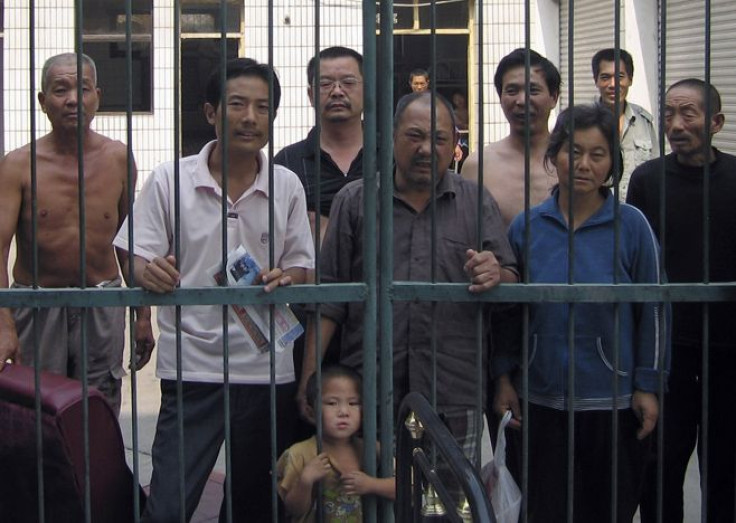Amnesty International Warns China's Labor Camps Are Revived As 'Black Jails' And 'Brainwashing Centers'

Following the Third Plenary meeting of the Communist Party in November, China announced that it would abolish its long-existing labor camps after repeated calls by human rights groups.
The announcement that Beijing would do away with the 350 “re-education” labor camps, known as the laojiao system, where an estimated 160,000 people are held without trial, surprised some. It was also heralded as the biggest step in judicial reform, and a necessary step to right China’s human rights record. Many of the inmates are being held for their dissenting political activities or religious beliefs.
And while the labor camps are being shut, a new report from Amnesty International suggests that the announcement is merely a “cosmetic change,” with prisoners being moved to different facilities but still suffering the same injustices. Following the announcement in November, the state-run Shanghai Daily reported that the old facilities would be used as drug rehabilitation centers, particularly in southwestern Yunnan province, which is a major drug transit point between China and Laos, Myanmar and Thailand. But Amnesty cautions that such "rehabilitation" centers are just a new name for an old practice. The report warned that “there is a very real risk that the Chinese authorities will abolish one system of arbitrary detention only to expand the use of other types.”
In an interview with CNN, Corinna-Barbara Francis, Amnesty International’s China researcher, said the changes are merely to “avert the public outcry over the abusive re-education through labor system.” Detainees at the labor camps that were changed into rehab facilities were reportedly moved to "black jails," which function similarly to labor camps. Black jails are a purgatory of sorts, detention centers set up in unofficial locations like hotel rooms, where people are held without being formally charged for a crime. Amnesty International also spoke about “brainwashing centers,” described as another form of forced detention. “The Chinese authorities must immediately end all forms of arbitrary detention and ensure that laws protecting detainees are brought into line with international human rights standards,” Francis said. “The abuses and torture are continuing, just in a different way.”
Foriegn Ministry spokeswoman Hua Chunying responded to Amnesty’s claims in a press conference on Tuesday. “This group has always had ideological prejudices against China, and continues to make unreasonable criticisms and start rumors to smear China,” Hua said.
© Copyright IBTimes 2024. All rights reserved.












